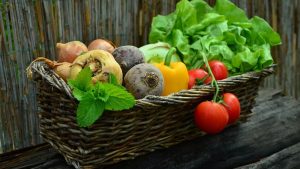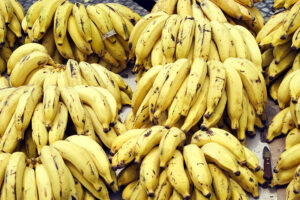Alsace (France): a collective of farmers bought a supermarket previously owned by the Lidl chain and transformed it into a direct sales market. Here, the logic of large retailers is reversed to the full advantage of product quality, prosperity for the local economy and a relationship of trust with consumers.
How can you go about selling your fruit and vegetable products directly to consumers, avoiding traditional distributors who weigh on the final price and reduce the profits of producers to the bone? This is the question that 35 Alsatian farmers asked themselves. The answer came quickly: get together to buy a supermarket!
The idea of going beyond large-scale distribution has been growing especially in recent times. Following the example of other farmers from eastern France, Denis Diegal, head of the collective of agricultural producers in Sélestat, explained how this project in Alsace was born:
“The thought had arisen a long time ago: I produce vegetables and have been practicing retail for years without selling my products to large retailers, both because of the mark-ups charged to the consumer and for the type of service they offer. Together with other farmers we thought of buying a Lidl warehouse, so as to directly reach the consumer. The supermarket has been renamed Coeur Paysan (Peasant Heart). It is a place of direct sales from the producer to the consumer, where farmers sell regularly. It is a means for local products to be sold and for the ancestral know-how of producers to be valued, which is what large retailers don’t want! “.
For Denis Diegel and his colleagues, the goal is to respond to an increasing demand for local products, met by producers who all orbit within a radius of 40 km from the supermarket. “In terms of prices, we are more advantageous than wholesalers, for example, on first produce – which we sell at 10 euros per kilo, while in large retailers the price is 12/13 euros; for other products, such as cheeses, we are more expensive because the quality of the product is certainly higher! “.
The economic model of the warehouse is also different from that of large-scale distribution: farmers and peasants own their products until they arrive at the supermarket checkout, where a commission is imposed that ranges accordingly from 22% to 32%; the producers are responsible for their products with the consumer, with whom they negotiate the price face to face. Another obligation of producers is their presence in the supermarket on at least two half days a month. This presence is appreciated by consumers because in this way they have 100% transparency on the products they buy.
Inside the Coeur Paysan warehouse you can discover rare varieties of fruit and vegetables. In addition, fresh products can be found at a fair price that correctly compensates small producers. It is not difficult to imagine that this supermarket can give birth to other similar warehouses, as long as this kind of experience is acknowledged and spread to as many people as possible, so that other farmers may take example from their Alsatian colleagues!








